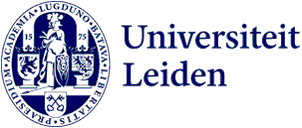
Randstad helps students find relevant part-time jobs: ‘Bring on that smart student!’
You speak Japanese, know everything about medieval art or understand exactly what Hegel meant. And then you graduate. Many Humanities students find it hard to enter the labour market. A relevant part-time job can help. Therefore, the faculty has been working together with the employment agency Randstad since November. In the meantime, the first students have found a (part-time) job.
Manouk Agterberg is a recruiter at Randstad. She has walk-in hours every Wednesday from 11.00 am to 12.00 am. ‘I always wanted to be a career counsellor at a university, so I really like helping students. During the walk-in hours I try to put myself in their shoes: what do I want, what do I like and what skills do I have already? Students receive a great education, are analytically strong and are good cooperators. They don’t always realise how important these skills are. I try to make them aware of it because I know that a lot of potential employers think: “Bring on that smart student!”
Immediate start
One of those smart students is Wietske. After completing a master North American Studies in Leiden and a master International Relations and Diplomacy in Antwerp, she graduated in September, amid the pandemic. ‘I would like to work a job in International Relations, but it’s hard to find a job in these times. When I went to the Career Service, they advised me to go to the walk-in hours.
After talking with Manouk, things went fast. Wietske had a job interview on Friday and could start as a customer service representative the next Monday. ‘This isn’t my dream job, but I’m happy. It’s nice to earn money and the job gives me a daily routine. Regularity brings me peace. I’m building and expanding my network through LinkedIn. I’d like to do a traineeship, for example at the European Union. Luckily, my boss is very understanding of this ambition.’
‘I didn’t know it existed, but it’s amazing’
Manouk too knows she can’t offer all students a perfect job at once. ‘Some students have a clear goal in mind. They want to work, for example, at an embassy, but there aren’t always open spots. In those cases, I try to figure out what elements of that dream job appeal to them and try to find those in other work.’ Sometimes, the other job is mainly a stepping stone, as it is for Wietske. Manouk: ‘I would advise students to just start. You improve your skills and can build a network. That’s always useful.’ And with a little bit of luck, the new function is a perfect fit. ‘Afterwards, students tell me : “Wow, I didn’t know this existed, but it’s amazing”.’
Are you interested in a (part-time) job? Contact the Career Service.
